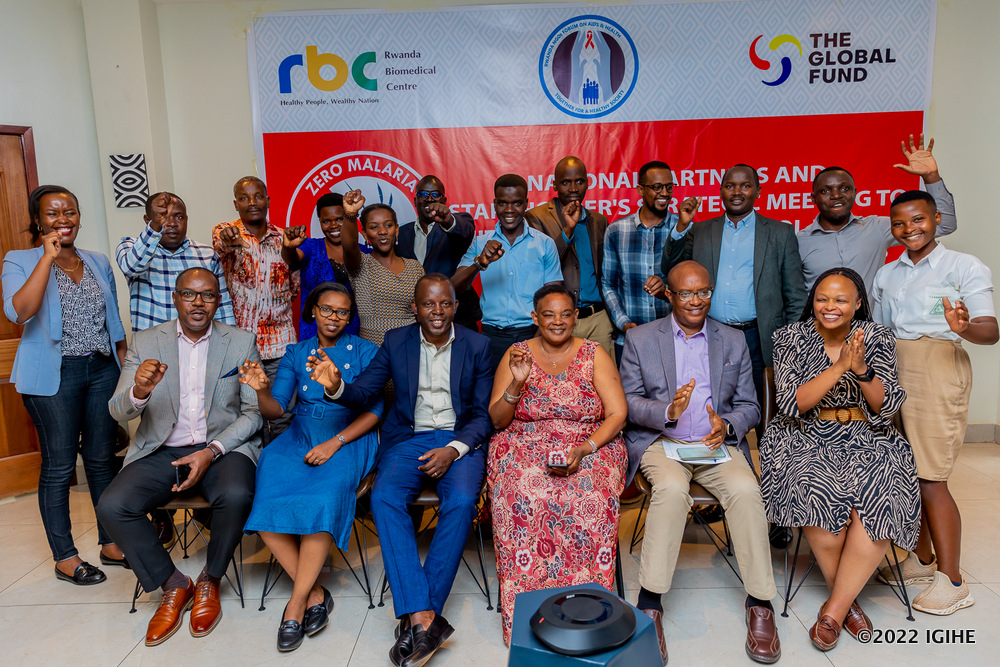Gov’t and civil society to unveil new strategies to tackle malaria in schools

The Government of Rwanda and Rwanda NGO Forum on AIDS/HIV and Health Promotion have unveiled new strategies to eliminate malaria in schools using mosquito nets, insecticides, repellents and larvicides and wearing body cover-up clothes.
The Rwanda Biomedical Center representative has emphasized that on Saturday, 22nd September 2022, while meeting with various stakeholders to discuss activities and new plans within innovative approaches and strategies towards strengthening collaboration mechanism and demand for accountability in the area of fighting end malaria and Neglected Tropical Disease (NTD) and contributing to the reduction of new malaria cases and NTYDs cases to zero.
Participants included Rwanda Government agencies, Rwanda Biomedical Center, Rwanda Education Board, Civil society organizations; Rwanda NGO Forum on AIDS/HIV and Health Promotion, Partners in Health, Universal health care, teachers, and students. They emphasized the need for innovative tools and strategies to tackle malaria and NTDs in schools.
Based on findings from World Health Organization (WHO), Students at school bear the under-appreciated burden of malaria. Across sub-Saharan Africa, the prevalence of infection peaks in the age group, and an estimated 200 million students at school are at risk of malaria.
The constant transmission and then forgotten in surveillance and control strategies consequently, approximately 6-9% of all Plasmodium deaths were retrieved in students aged 5-14 years globally representing 70,000-110,000 malaria death per year.
Universal anti-malarial interventions, such as bed nets and access to rapid diagnosis and treatment, are expected to cover all groups and structures in the community. However, students in schools are less likely to benefit from those interventions.
The findings of the assessment done by Rwanda Biomedical center using the roll back malaria (RBM) Matchbox Toolkit showed that the NMCP strategy for malaria control among vulnerable groups in the country appears comprehensive, but gaps persist in reaching students at schools. Thus, malaria control interventions specifically targeting students in boarding schools are needed.

During the National stakeholders’ introductory and orientation meeting on the malaria school health program and activities on Malaria control in high burden, Dr. Epaphrodite Habanabakize From The Malaria, Neglected Tropical Diseases and Other Parasitic Diseases Division in Rwanda Biomedical Center-RBC highlighted the measures agreed upon by those stakeholders in order to fight against malaria in schools.
“Every student at school should have a mosquito net, it is our concern. At school during the nights, they need different kits for protection, like mosquito nets, insecticides, repellents, and wearing body cover-up clothes.”

Habanabakize also highlighted the awareness of the school’s students about the fight against malaria, which they propagate to the local community.
“31% of Rwandans are at school, if you teach them protection strategies, they bring them to their families and protect them. There are other strategies within families, but we want to work with this small team that needs to provide knowledge, educate parents and change the community to be like the other tools.”

As part of pilot strategies, primary and secondary school teachers from the 15 schools in the Kayonza district were trained on how to test for malaria. For the Rwanda Basic Education Board-REB, these activities initiated in schools are a good opportunity and could cooperate with other institutions, as said Dr. Niyizamwiyitira Christine. She added that the program will be expanded nationally

Habimana Hassan, the legal representative for Universal Health in Education, said that to protect students and help them to recuperate in time, they trained teachers to treat students helped by Partners in Health, When they began to do that, malaria went down.”

Musabyeyezu Christine a G.S Kabarondo teacher noted that malaria has diminished in their schools as they were trained in treatment and eradication.
She said, “When a student has a fever, we immediately work with the teacher who is on the program to treat them, she/he tests him/her and diagnoses him with Malaria and gives him/her medicine if necessary”.
The Executive Secretary of NGOs Forum on HIV/AIDS and Health Promotion, a key umbrella of civil society organizations that have been working with key and vulnerable communities in health promotion and malaria prevention activities to reduce the burden of malaria and Neglected Tropical Diseases (NTD), Kabanyana Nooliet, said that this activity will continue in other parts of the country in order to fight malaria. She thanked the contributions made by the various stakeholders.

By 2024, there is a strategic malaria reduction plan for 2019 at 50%. Global malaria and NTD targets WHO’s global malaria strategy for 2016–2030 aims to: reduce malaria case incidence by at least 90% by 2030, reduce malaria mortality rates by at least 90% by 2030, eliminate malaria in at least 35 countries by 2030 and prevent a resurgence of malaria in all countries that are malaria-free.
By Deus Ntakirutimana
Photos:IGIHE


